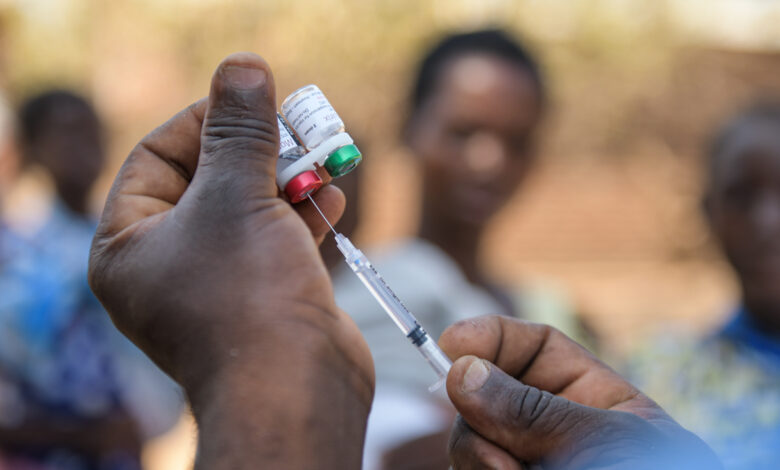Global Vaccination Rates Drop To Levels Not Seen In A Decade – SCI
The Save the Children International (SCI) believes that immunisation saves millions of lives and it is recognised as one of the world's most successful health interventions that prevents diseases, disabilities, and deaths from vaccine-preventable diseases

Save the Children International (SCI) has lamented that available data shows global vaccination rates have dropped to levels not seen in a decade, with 3.5 million fewer children receiving vaccines in 2020 compared to 2019.
According to a press statement released on Monday, April 25, by the charity organisation to commemorate World Immunisation Week, the COVID-19 pandemic contributed to the disruption of immunisation services, leaving millions of children at greater risk of missing out on critical vaccinations against diseases like measles, mumps, whooping cough, pneumonia, and poliomyelitis.
SCI believes that immunisation saves millions of lives and it is recognised as one of the world’s most successful health interventions as it prevents diseases, disabilities, and deaths from vaccine-preventable diseases (VPDs).
Amanuel Mamo, Director of Advocacy, Campaigns, Communication and Media, SCI Nigeria, called upon the government to scale-up vaccines for preventable diseases.
“We urge the Government of Nigeria to support an increase in domestic investment in the health sector to meet the 15 per cent target of the Abuja Declaration and ensure that health spending improves child health services.”
Mamo said services should include removing user fees, reducing non-financial barriers to accessing care, and prioritising primary health services, among others. “Focusing on zero-dose children is particularly important because those who are reached with the first vaccine are highly likely to also receive remaining dosages,” he added.
World Immunisation Week
World Immunisation week is celebrated in the last week of April annually, and aims to highlight the collective action needed, and to promote the use of vaccines to protect people of all ages against disease.
Mamo explained that, “this week provides us an opportunity to increase public awareness about the importance of every person’s need and rights, including that of children, girls, women and people with disabilities, to be protected from vaccine-preventable diseases.”
According to a report, seven out of 10 children are not fully vaccinated in Nigeria with some receiving as low as one. According to the Nigerian Demographic and Health Survey 2018, 19 per cent of children aged 12 – 23 months were not vaccinated at all.
While the SCI has mentioned the advent of COVID-19 as a contributing factor, in Nigeria, the reasons are more complex as things such as health services quality, equal distribution of vaccines, and overall lack of awareness hindered the full vaccination of children.
Recently, over a million children in Ghana, Kenya, and Malawi have reportedly received one or more doses of the world’s first malaria vaccine through a pilot intervention backed by the World Health Organisation (WHO).
However, Nigeria, which accounts for 27 per cent of malaria cases globally, has been left out of this intervention due to lack of proper health systems.
Support Our Journalism
There are millions of ordinary people affected by conflict in Africa whose stories are missing in the mainstream media. HumAngle is determined to tell those challenging and under-reported stories, hoping that the people impacted by these conflicts will find the safety and security they deserve.
To ensure that we continue to provide public service coverage, we have a small favour to ask you. We want you to be part of our journalistic endeavour by contributing a token to us.
Your donation will further promote a robust, free, and independent media.
Donate HereStay Closer To The Stories That Matter




